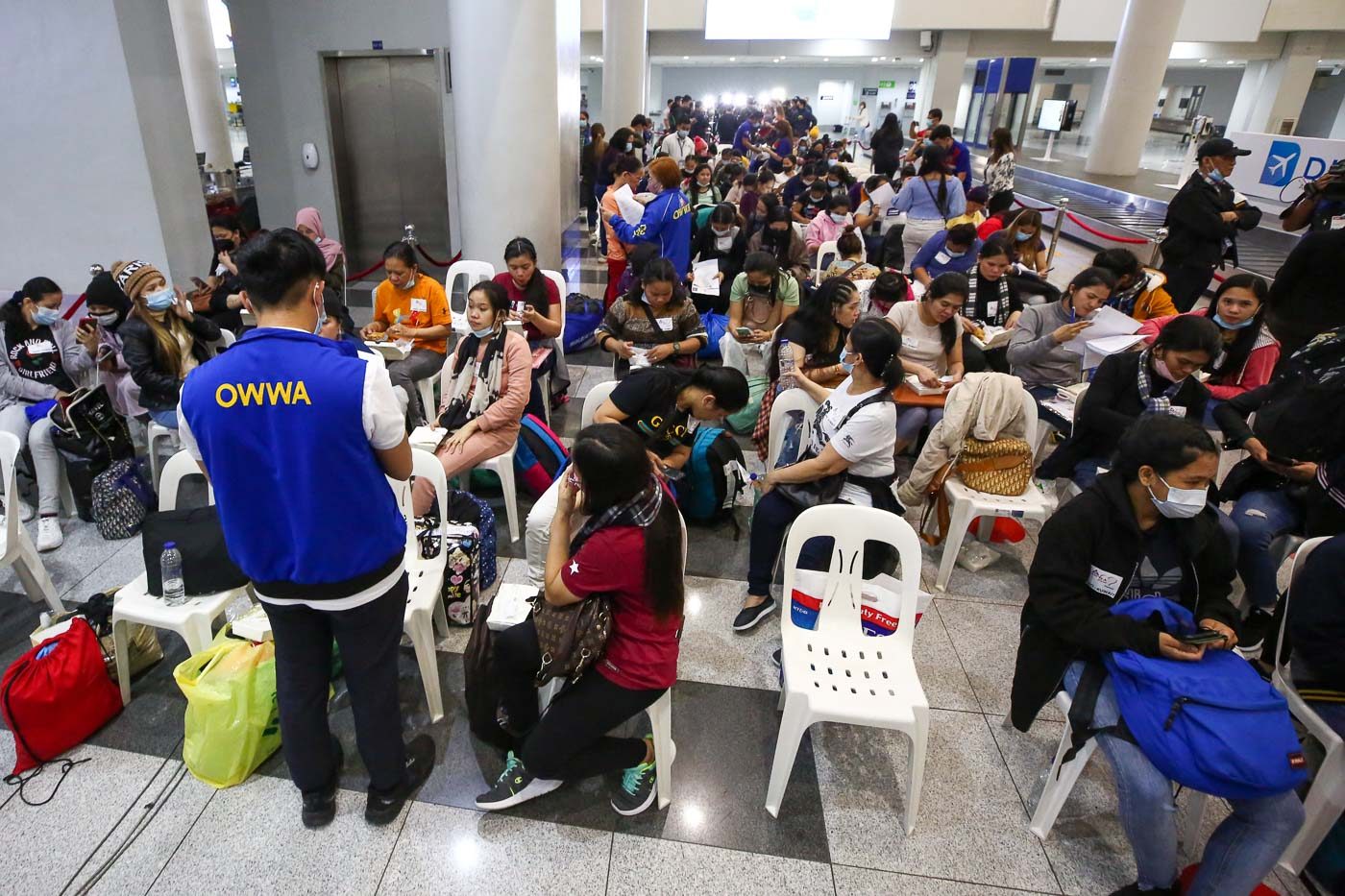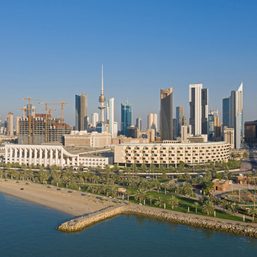SUMMARY
This is AI generated summarization, which may have errors. For context, always refer to the full article.

MANILA, Philippines – The country’s reintegration programs for overseas Filipino workers (OFWs) should offer incentives for Filipinos working abroad to return home, a director for the Overseas Workers Welfare Administration (OWWA) said in a House committee on overseas workers affairs hearing on Wednesday, November 29.
OWWA Policy and Program Development Director Jocelyn Hapal brought the idea up during the panel’s deliberation of the proposed Magna Carta of Filipino Migrant Workers, which aims to provide “comprehensive protection and promote [OFWs’] rights” in accordance with international conventions, existing laws, and the Philippine Constitution.
“The reintegration program should provide incentives for OFWs to return to the country,” Hapal said.
Pointing to the situations in Israel, Lebanon, and Sudan in the past year, Hapal said in a mix of Filipino and English: “No matter what the situation is, they don’t want to go back. And we think this points to the lack of incentives for them to go back.”
When the war between Israel and Palestinian militant group Hamas broke out in October, many of the 30,000 OFWs in Israel chose to stay. Repatriations have been underway with just a few dozens in a batch at a time.
Hapal pointed to a need for greater social protection and medical coverage.
“Kaya kahit may sakit na po sila doon sa ibang bansa, hindi po sila umuuwi because we don’t have portability of social security and even medical coverage. But if we would strengthen the social protection system and mechanism natin, then hindi sila magdadalawang isip na bumalik,” she said.
(So even when they’re sick abroad, they don’t go home because we don’t have portability of social security and even medical coverage. But if we strengthen our social protection system and mechanism, they wouldn’t think twice about coming back.)
Kabayan Representative Ron Salo, chair of the House panel, said OFWs are usually able to take advantage of the Universal Health Care Act when they return to the Philippines.
“It’s a reality also – how can the law be implemented abroad?” said Salo, adding that the panel would seek clarification with the Philippine Health Insurance Corporation in a future hearing.
Long-term employment
According to Arman Hernando, chairperson of OFW rights group Migrante Philippines, the government should focus on providing long-term jobs OFWs can come home to instead of simple “incentives.”
“Hindi kasi nila kayang iwan ang trabaho na mayroon sila sa abroad dahil alam nilang hindi nila ito makukuha kapag umuwi sila sa bansa. Ito ang main point bakit mas pinipili nilang manatili sa bansang pinagtatrabahuhan nila sa gitna ng mga panganib,” said Hernando in a message to Rappler.
(They cannot leave their jobs abroad because they know they won’t be able to find a job like it when they come home. This is the main point why they choose to stay in their host country amid conflict.)
According to Hernando, without the certainty of long-term employment in the Philippines, OFWs will still stay abroad even if, for instance, OWWA gives returning OFWs financial assistance. “Madali lang kasing mauubos ang pera na iyon dito sa Pinas (This money will run out quickly in the Philippines),” he said.
In OWWA’s Balik Pinas! Balik Hanapbuhay! Program, repatriated, distressed OFWs can receive up to P20,000 as capital for a livelihood program. OFWs can get more during a crisis, such as the P50,000 repatriates from Israel are receiving.
“They should not view reintegration as a form of incentive or just a mere option for migrants. It must be a long-term solution to the problem of forced migration of our people. For our countrymen to reintegrate, there should be enough decent jobs that provide living wages here in the country for them,” Hernando said in a mix of English and Filipino. – Rappler.com
Add a comment
How does this make you feel?






There are no comments yet. Add your comment to start the conversation.